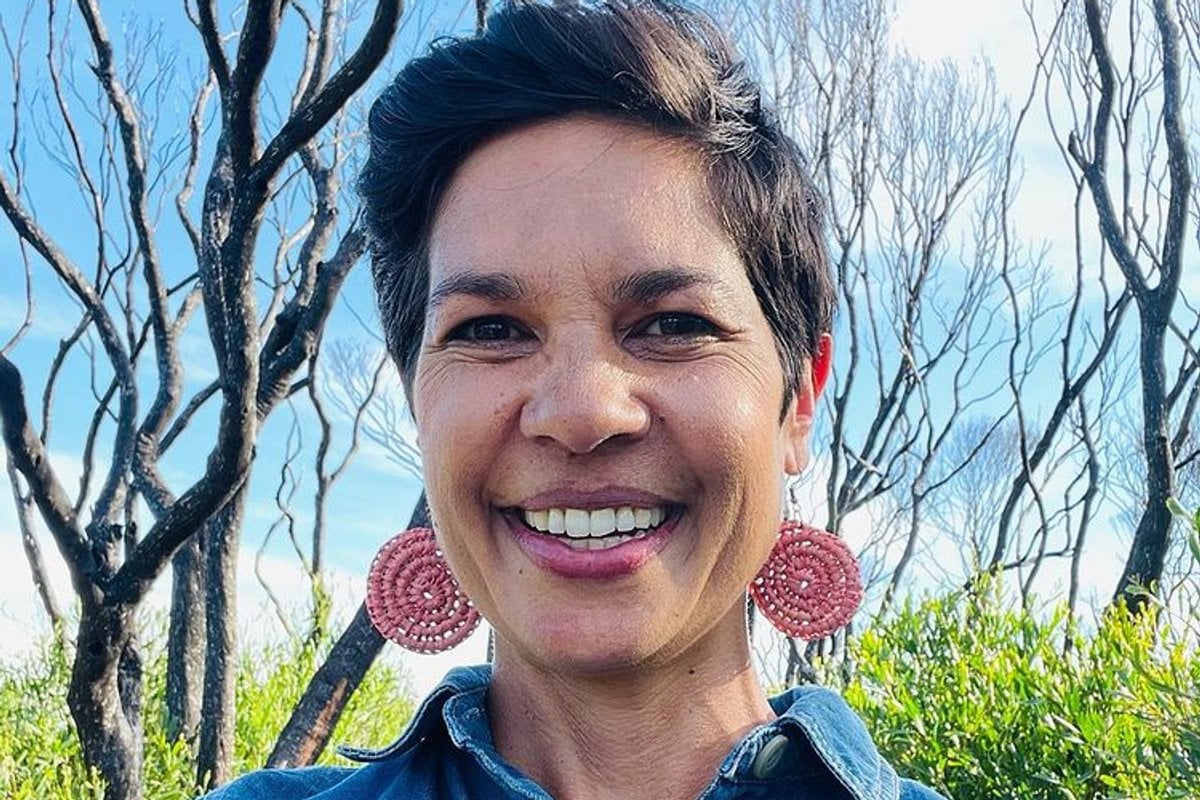
This story includes descriptions of domestic violence that may be distressing to some readers.
Whadjuk Noongar woman Narelda Jacobs did everything she thought was necessary to be successful.
She studied broadcast journalism at the Western Australian Academy of Performing Arts.
She earned a job as a news reporter in Perth, then later anchored the city’s primetime bulletin for Channel 10.
Watch: Changing the date with Narelda Jacobs. Post continues after video.
She moved to Sydney where she’d earned a place on the panel of the network’s national morning show, Studio 10.
She developed a profile, a following, in the famously white-male world of television news.
But in late 2022, a single conversation helped Narelda Jacobs realise she wanted, even needed, to do more. Not for herself, but for her community.
Shortly after the alleged murder of Noongar Yamatji teenager Cassius Turvey, Jacobs spoke with Megan Krakouer, a renowned activist and coordinator at the National Suicide Prevention and Trauma Recovery Project. The Noongar woman had worked closely with the Turvey family to coordinate vigils around the country and amplify their message of love and solidarity.
Krakouer and Jacobs spoke for three hours that day, touching on everything from racial violence to poverty and intergenerational trauma. And when they reunited recently for a special episode of Mamamia’s No Filter podcast, Jacobs said that yarn had changed her life.


Top Comments